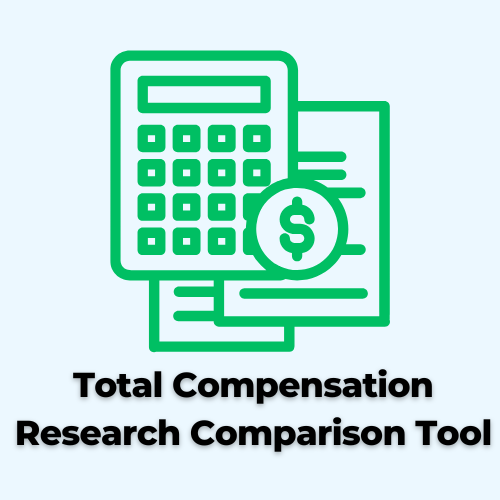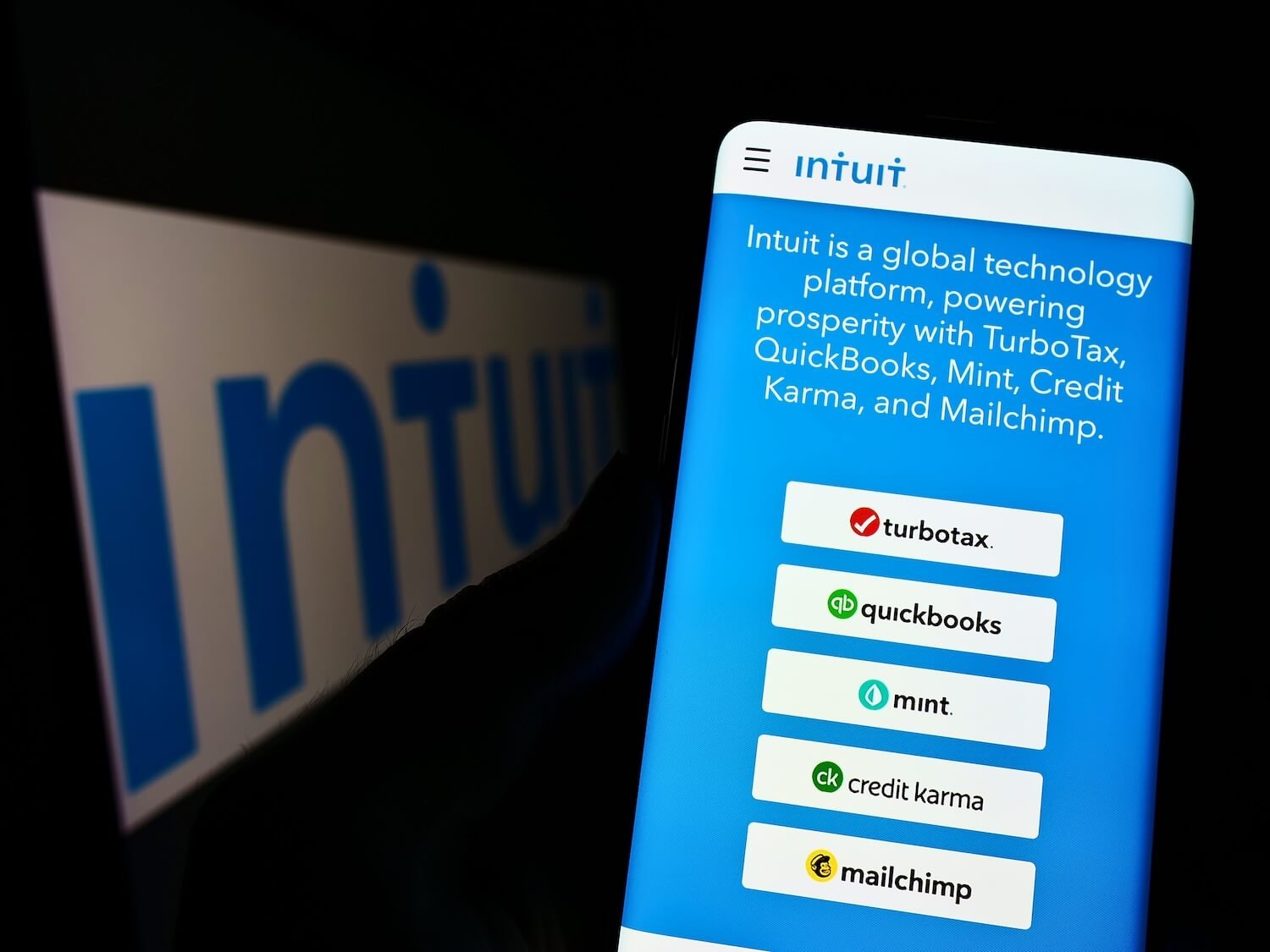Intuit Salary Negotiation - How to Negotiate an Intuit Job Offer
If you’ve recently received an Intuit job offer, congratulations! Being given the opportunity to work for one of the largest global financial technology companies is something to be proud of and something to look forward to.
But before you get too excited, there’s still one thing you need to think about and that’s negotiating Intuit salary.
From TurboTax to Mailchimp to Mint and their other family of brands, working for Intuit can be a great step forward in your career journey and we’re here to show you how to make the most while doing it.
Over the years, career professionals have used our salary negotiation strategies to secure significantly improved Intuit compensation packages and we want to share these insights and tips with you. As intimidating as negotiating your offer might seem, you can rest assured knowing that Intuit salary negotiations are both incredibly common and if done right, incredibly effective.
In this guide, we will walk you through how to prepare for and execute your Intuit salary negotiation strategically. By the end, you’ll have the tools you need to secure an improved Intuit offer letter.
Want to Negotiate Your Offer? Get offer-specific guidance from an Intuit Salary Negotiation Coach. We help career professionals negotiate competitive job offers.
Or leverage our Salary Negotiation Courses and Salary Negotiation Templates.
 Job Offer Negotiation Course
Job Offer Negotiation Course
- Get our job offer negotiation strategies, templates, scripts, and guidance.
- Access our step-by-step lessons, compensation research guides, and tools.
- Access Now
 Raise Negotiation Course
Raise Negotiation Course
- Get our raise negotiation strategies, templates, scripts, and guidance.
- Access our step-by-step lessons, compensation research guides, and tools.
- Access Now
Understanding Intuit Compensation Components
The great thing about successful salary negotiations is that they all start in the same place: understanding exactly what’s being offered in your compensation package.
So whether you’re negotiating a Microsoft software engineer salary, a Meta product manager salary, or an Intuit salary, you’ll need to start by carefully analyzing your offer and what’s included.
The key here is to look beyond your base salary and take into consideration all of the elements that contribute to your total compensation at Intuit. For example, most job offers in the tech space include a wide range of compensation components, including annual target bonuses, equity packages, and sign-on bonuses.
When it comes to Intuit job offers, the total compensation that you receive will be split across the following compensation components:
INTUIT BASE SALARY
INTUIT BONUS
INTUIT EMPLOYEE EQUITY
INTUIT SIGN-ON BONUS
INTUIT STOCK REFRESHERS
For example, here’s what the total compensation package may look like in an initial offer for an Intuit senior software engineer salary:
INTUIT SOFTWARE ENGINEER SALARY
So why is evaluating the different elements of your Intuit salary package so important?
To effectively negotiate an Intuit offer letter, you need to be able to calculate your total annual take home pay. Only then will you have an accurate understanding of the entire Intuit job offer so you can negotiate each element successfully.
In the following sections, we are going to break down the most common elements of an Intuit compensation and benefits package and explain them each in detail.
INTUIT BASE SALARY
The Intuit base salary is the guaranteed fixed pay you receive in exchange for the work you do there. The only time your Intuit base salary would change is if you receive merit increases or a promotion. Otherwise, your Intuit base salary will always remain the same in your role.
Like most large tech companies, Intuit has fixed base salary ranges for each of their specific roles. The Intuit base salary that you’re offered can fall anywhere between the minimum and maximum amounts associated with these ranges. For example, the base salary ranges for an Intuit senior software engineer salary will vary from the ranges for an Intuit staff software engineer salary. Even Intuit job offers at the same level will have different pay ranges depending on their specific roles (i.e., an Intuit program manager salary vs. an Intuit product manager salary).
It’s likely that the base salary initially offered in your Intuit offer letter will fall at the lower to mid-end of the pay range for your role. If you can identify what the Intuit base salary range is then you know you can negotiate for a higher Intuit base pay.
INTUIT PERFORMANCE BONUS
Like other large tech company job offers, such as the salary at Meta or salary at Google, Intuit offers an annual target bonus that is based on both personal and company performance.
These performance bonuses are a percentage of your base salary and will different depending on the Intuit role level, type, and department (i.e., the bonus for an Intuit engineering manager salary could be higher than that for an Intuit data scientist salary).
Being offered a performance bonus is a major win given that similar job offers at other top companies, like the Netflix salary and Nvidia salary, do not include performance bonuses as part of their compensation packages.
With that being said, we have found that Intuit performance bonuses are non-negotiable. The best way to increase this component is to negotiate up the Intuit base salary since your target bonus will be a percentage of that number. The higher your Intuit base salary, the higher your Intuit bonus will be.
INTUIT EQUITY PACKAGE
Equity is a key differentiator in compensation packages that drives most career professionals to tech companies, including Intuit.
An Intuit offer letter will include an initial Intuit employee equity grant, which comes in the form of restricted stock units (Intuit RSUs), not Intuit employee stock options. These Intuit RSUs represent actual stock (i.e., you will receive shares of INTU stock) that you will own when the Intuit employee stock vest according to the Intuit vesting schedule.
Intuit RSUs have a four-year Intuit vesting schedule which means your initial stock will vest in equal amounts (25%) annually over those four years. The great thing is that Intuit equity packages are fully negotiable. The key here is to not negotiate the Intuit employee equity separately and instead negotiate it alongside the other compensation components. That way you don’t risk the Intuit hiring team just moving money from one bucket to the other and your Intuit total compensation doesn’t increase.
While Intuit RSUs can make up a large portion of your future compensation, don’t forget that the value of the Intuit employee equity will fluctuate based on the market value of Intuit. If the INTU stock is doing great, so will its employees. But the reverse is also true for Intuit RSUs.
INTUIT SIGN-ON BONUS
An Intuit sign-on bonus is a one-time hiring bonus you receive when you start your role. The purpose of the Intuit signing bonus is to incentivize you to join and it can make up for any lost bonuses or unvested equity at your former company.
Most roles should be eligible for an Intuit sign on bonus, but unlike Amazon sign-on bonuses that are extended in every offer, you might have to negotiate for one.
However, you’ll be happy to know that we’ve had lots of success over the years helping clients negotiate Intuit signing bonuses – even if they didn’t have a competing offer or weren’t walking away from money at their previous company.
INTUIT STOCK REFRESHES
You should see an Intuit stock refresher (more Intuit RSUs) in most roles annually, but it’s difficult to know how much you’ll receive until you reach your first Intuit equity refresher.
Most recruiters will not willingly share the expected yearly amount for an Intuit stock refresher so you will need to press them on this (what is the annual amount, the Intuit vesting schedule, etc.). While we encourage you to ask the recruiter about it, we don’t include the Intuit stock refresher in our Intuit total compensation calculation because the unknowns make it difficult to compare across offers.
INTUIT EMPLOYEE BENEFITS AND PERKS
An Intuit compensation package will also include decent Intuit employee benefits and perks, such as health, an Intuit employee stock purchase plan (Intuit ESPP), and other core benefits (Intuit 401k match, medical perks, generous PTO, etc.). In general, Intuit employee perks are what you’d expect from a large tech company.
Even though Intuit employee benefits are typically non-negotiable, we still suggest carefully evaluating and asking about them during the due diligence phase of the negotiation process. This is one of the best ways you can build leverage in your Intuit salary negotiation.
Steps for an Intuit Salary Negotiation
Now that you have a better understanding of the most common compensation components of an Intuit compensation package, you should be ready to learn how to negotiate an Intuit job offer.
However, before we cover these steps, we have an important caveat: you should only follow these Intuit salary negotiation strategies once you have an Intuit offer letter in hand. Negotiating before receiving an offer can work against you and remove any leverage you have with the Intuit recruiting team.
In addition to reviewing these key steps to an Intuit salary negotiation, we strongly recommend working with an Intuit Salary Negotiation Coach to guarantee success in your Intuit salary negotiation.
1) UNDERSTAND THE COMPONENTS OF INTUIT SALARY
Step one should be almost complete if you’ve been following along in this guide. As a quick reminder, every successful Intuit salary negotiation requires digging into the Intuit offer letter and making sure you understand each of its individual components.
Ultimately, you want to make sure you’re clear on your Intuit total compensation before trying to negotiate your Intuit job offer. We encourage you to use our Total Compensation Tool to calculate your Intuit compensation components during this step.

- Understand Total Compensation – Use our tool to break down and calculate the compensation in your job offer.
- Research & Compare Offers – Organize your compensation research and determine the right counter amount.
- Get Here
2) COMPLETE DUE DILIGENCE ON INTUIT OFFER LETTER BY ASKING STRATEGIC QUESTIONS
Once you’ve calculated your total Intuit compensation, your next step should be to begin asking the recruiting team questions about your offer.
This due diligence accomplishes two things:
You gain the insights needed to develop an effective Intuit counteroffer
You demonstrate to the recruiting team that you value the opportunity and are researching the offer details
As tempting as it might be to think it over, we recommend you start asking questions within the first 24-48 hours of receiving your Intuit offer letter. You should still ask certain questions even if you’re confident you already know the answers.
Here’s our list of strategic questions to ask: Strategic Questions to Build Negotiation Leverage.

- Build Negotiation Leverage – Ask the right questions to strengthen your negotiation before sending a counter.
- Email & Phone Scripts – Get our list of questions to ask and what to say if the recruiter wants to chat through them.
- Get Here
3) RESEARCH WHAT INTUIT COMPENSATION SHOULD LOOK LIKE
This next step is all about researching what your Intuit compensation should look like. Gathering this research will help you gain a better understanding of the strength of your initial Intuit offer letter and how much you should counter for.
As we explained earlier, Intuit compensation structures typically depend on predetermined salary ranges for each specific role which is why your research needs to be specific to your exact level and position. You wouldn’t want to come to the negotiation table with data on an Intuit software engineer salary if your offer was actually for a senior software engineer salary at Intuit.
Thankfully, there are many online resources available for compensation research, such as Glassdoor and Payscale, among others. However, remember that these publicly recorded pay ranges may not reflect all compensation components correctly, especially given changes in compensation from year to year (i.e., if you see data on Intuit Levels fyi boasting high total comp it might be due to equity appreciation and not what they typically offer a new hire). To ensure accuracy, we recommend cross-referencing pay data across multiple platforms.
We created our Total Compensation Research Comparison Tool to help you streamline your research and effectively analyze pay ranges for your role.

- Understand Total Compensation – Use our tool to break down and calculate the compensation in your job offer.
- Research & Compare Offers – Organize your compensation research and determine the right counter amount.
- Get Here
4) SEND AN INTUIT COUNTEROFFER TO THE RECRUITER
Using your Intuit compensation research and data, you should now be ready to develop an effective Intuit counteroffer and present it to the recruiter. This step is all about taking a strategic data-based approach and NOT just highlighting what you would bring to the team – that already took place in the interview and why you got the offer to work at Intuit to begin with.
Within your counter, you should respectfully:
Communicate how the benefits in your initial Intuit offer letter differ from other companies and/or your current role
Reference the leverage points you discovered during the due diligence phase
Strategically highlight the Intuit pay data insights you’ve gathered
We recommend presenting your counter by email as it both minimizes the risk of you going off topic on the phone and it gives the Intuit recruiter something tangible (and accurate) to share with the hiring team.
During this process, don’t forget that you’re not an Intuit employee yet so this is your opportunity to highlight how you’d act once an official member of their team. To ensure proper communication, we recommend using our Counteroffer Email Templates to help you draft a strategic Intuit counteroffer.

- Proven Counteroffer Templates – Built from hundreds of successful job offer negotiations.
- Negotiate with Confidence – Remove the guesswork with our professionally crafted counteroffers.
- Get Here
5) HANDLE RECRUITER OBJECTIONS ON THE INTUIT COUNTEROFFER
Don’t be surprised if after you send over your Intuit counteroffer you receive some pushback from the recruiting team. In many cases, they’ll initially respond with reasons why they can’t make any increases or changes to the Intuit offer package.
This is a typical part of the process and one you should be prepared for. When faced with this pushback, respond professionally by stating you understand their constraints, but ask again if they could take your Intuit counter offer back to their comp team for one last look (like we explain in our Recruiter Objection Handling Scripts). You should still ask even if they insist their team will just say no.

- Overcome Recruiter Pushback – Proven scripts to handle pushback and keep your salary negotiation on track.
- Communicate Effectively – Use expert responses to get recruiters to advocate for you with the compensation team.
- Get Here
Once they agree to take your thoughts back to their team, they should come back with an improved Intuit offer letter. If the updated compensation package aligns with the Intuit salary bands you researched and meets your goals, you should be ready to send over our Offer Acceptance Email to document the new components and lock it in!

- Accept or Decline – Expert crafted job offer acceptance email and rejection email templates to share your decision.
- Professional & Genuine Tone – These help you communicate in a professional manner regardless of what you decide.
- Get Here
Negotiation Mistakes to Avoid During an Intuit Salary Negotiation
There are plenty of mistakes that can be made in the Intuit salary negotiation process – especially if you’re not working with a Salary Negotiation Coach. Below we’ve listed some of the most common pitfalls you should look to avoid.
Avoid Sharing Intuit Salary Expectations Before Getting an Intuit Job Offer
Intuit recruiters will try their best to uncover your salary expectations during the Intuit interview process. However, like we’ve said before, never share your salary expectations before you get an Intuit job offer.
In almost every instance, sharing your salary expectations before you have an offer in hand actually makes it more difficult to receive the best compensation package and this is true for sharing these details verbally or on job applications.
For example, if you happen to share a lower Intuit director salary expectation with the recruiter than what they could offer, they will then be motivated to offer you that lower compensation or down level you. Alternatively, if you answer with a number higher than what they are able to realistically offer for an Intuit director salary, they could become disinterested and decide to go with a different candidate.
Be prepared for the Intuit recruiters to even try to convince you that knowing your compensation expectations can help them find a deal that works well for both you and their team. That might sound reasonable at first but remember that at the end of the day they are working for Intuit, not you.
Use our Salary Expectation Responses as a resource for overcoming these tactics.

- Salary Expectation Responses – Scripts to overcome recruiter salary expectation discussions and pre offer calls.
- Avoid Lowballing Yourself – These call scripts and email templates will help you get a competitive offer.
- Get Here
Don't Be Afraid of an Intuit Salary Negotiation
The biggest mistake job seekers make is not negotiating at all. This is usually due to a lack of confidence or inexperience in negotiating as well as the fear of losing out on the Intuit offer letter altogether.
However, we can assure you: you’re not going to lose out on a offer because of an attempted Intuit salary negotiation. We’ve helped facilitate hundreds of successful tech salary negotiations and we’ve never seen a company take back a job offer because a candidate tried to negotiate by following our strategies.
Regardless of the role level – whether it’s an Intuit data scientist salary or an Intuit SWE salary – you should negotiate your Intuit job offer. Don’t ever let salary negotiation fears keep you from advocating for competitive compensation during an Intuit salary negotiation.
BE REALISTIC BY DOING RESEARCH WHEN EVALUATING INTUIT CAREERS
It’s true that Intuit careers do pay well. However, you never want to push for unreasonable compensation in an Intuit career.
That’s why taking the time to understand each element of your Intuit compensation package and researching the Intuit pay ranges for your specific role is so important. With the right Intuit salary data and insights, you should be able to come up with an appropriate and effective Intuit counteroffer that results in an improved Intuit offer letter.
Intuit Salary Negotiation Coaching & Tools
Increasing Intuit compensation requires a deep understanding of the company’s compensation philosophy and the right salary negotiation strategy. Our expert Salary Negotiation Coaching will help you navigate the Intuit salary negotiation process and secure the top end of the pay band.
Or leverage our Salary Negotiation Courses and Salary Negotiation Scripts.
 Job Offer Negotiation Course
Job Offer Negotiation Course
- Get our job offer negotiation strategies, templates, scripts, and guidance.
- Access our step-by-step lessons, compensation research guides, and tools.
- Access Now
 Raise Negotiation Course
Raise Negotiation Course
- Get our raise negotiation strategies, templates, scripts, and guidance.
- Access our step-by-step lessons, compensation research guides, and tools.
- Access Now



